The Desert and the Sown

Bedouins of the Syrian Desert.
(JOHN SARGENT, R.A.)
The Desert and the Sown
The Syrian Adventures of the Female
Lawrence of Arabia
Gertrude Bell
New introduction by Rosemary OBrien
WITH FRONTISPIECE BY JOHN SARGENT, R.A.
ALSO MANY ILLUSTRATIONS

First Cooper Square Press Edition 2001
This Cooper Square Press paperback edition of The Desert and the Sown is an unabridged republication of the work originally published in New York in 1907 under the title Syria, with the deletion of one map, the reproduction in black and white of one illustration (originally colored by hand), and the addition of a new introduction by Rosemary OBrien.
New introduction copyright 2001 by Rosemary OBrien
All rights reserved.
No part of this book may be reproduced in any form or by any electronic or mechanical means, including information storage and retrieval systems, without written permission
Published by Cooper Square Press
An Imprint of the Rowman & Littlefield Publishing Group
150 Fifth Avenue, Suite 817
New York, New York 10011
Distributed by National Book Network
Library of Congress Cataloging-in-Publication Data
Bell, Gertrude Lowthian, 18681926.
[Syria, the desert and the sown]
The desert and the sown: the Syrian adventures of the female Lawrence of Arabia / by Gertrude Bell; new introduction by Rosemary OBrien; with frontispiece by John Sargent.
p. cm.
Originally published: New York : E.P. Dutton and Co., 1907.
ISBN 978-0-8154-1135-2
1. SyriaDescription and travel. 2. SyriaSocial life and customs. I. Sargent, John Singer, 18561925. II. Title.
DS94 .B42 2001
915.69'104'3dc21
2001047225
 The paper used in this publication meets the minimum requirements of American National Standard for Information SciencesPermanence of Paper for Printed Library Materials, ANSI/NISO Z39.481992.
The paper used in this publication meets the minimum requirements of American National Standard for Information SciencesPermanence of Paper for Printed Library Materials, ANSI/NISO Z39.481992.
Manufactured in the United States of America.
INTRODUCTION TO THE COOPER SQUARE PRESS EDITION
How did it happen that an Englishwoman named Gertrude Bell leapt over the barriers of class and gender to reach fame in the Middle East, and why? As Oriental Secretary to the British high commissioner, Sir Percy Cox, she played a role in bringing Prince Faisal ibn Husain to the throne in Baghdad on August 21, 1921, a man to whom she referred, not entirely in jest, as her king. She rallied the normally disobedient Euphrates tribes behind the new monarch. Depending upon ones viewpoint, Faisal was either Londons willing puppet or the hope of Iraqs future. He was a bedouin aristocrat from the western Arabian Peninsula and a descendant of the Prophet. He had joined the Allies to ride as T. E. Lawrences companion in the 1917 desert war against Turkey. For the British he was cast as the hero of the myth that Arab rule had come to Baghdad. In reality, authority would remain in the hands of the dignified Sir Percy and a group of British advisors. London was convinced that it would control Iraq until that undetermined and presumably distant day when the untutored Iraqis had learned to govern themselves. In the spirit of self-congratulations Bell regarded herself as one of the tutors.
Stylishly dressed, as usual, Bell left her house in the old city at sunrise on Coronation Day in 1921. She dashed past the corner mosque, saluted the neighborhood orange seller, and headed downtown. Silently cursing the sun, which already poured heat down from the cloudless sky, she entered the courtyard of the British administrative offices that overlooked the Tigris and seated herself directly in front of a festooned stage. It was a moment of imperial high drama. The prince and his retinue came pacing forward to the sound of regimental music. Bell loved pomp and circumstance, the supreme expression of British values. Moreover, she felt that history was smiling on her endeavors.
After the ceremony Bell welcomed a throng of visitors to her office, where, as it was widely understood, she presided over a network of spies that covered the entire country. She was not shy about admitting privately that her job as head of domestic intelligence put her at the center of this web of informers. While it might be supposed that political intrigue naturally would thrive on the banks of the Tigris during this period of political uncertainty, what is less clear but most intriguing is how a woman managed to grasp the threads of influence and weave them to fit her own ambitions.
Bells career as an Eastern traveler had begun without fanfare in 1900, her thirty-second year. It was an era when parlor and nursery marked the expected, conventional boundaries of a Englishwomans normal existence. Bell, however, became during the early decades of the twentieth century, a canny and respected analyst of politics in Turkish Arabia. Her curiosity and boldness were valued by the British foreign office, which was convinced of the imminent collapse of Turkey and consequent Arab unrest at the back door to India. The appearance of German traders in the Persian Gulf increased Londons anxiety.
If clandestine snooping for evidence of desert rivalries sharpened Bells wits, archaeology satisfied her scholarly inclinations. As an emerging field it gave women a niche in one of the few areas open to them on the assumption that they were better suited than men to perform the repetitive work required.
Bells life and work converged as she navigated between two established traditions of Eastern travel: one stressing the search for knowledge about unknown cultures; the other romantically identifying with the simple lives of unsophisticated peoples. Temporary exiles like Bell saw exploration as an escape from the routines of the familiar.
Her work in British Intelligence during the First World War led to appointments in Iraq, where she gained an unprecedented amount of political influence as the first and only woman administrator to be taken into the British imperial service as Oriental Secretary.
Gertrude Bell was born in 1868 into a wealthy manufacturing family in Yorkshire. Her mother died in 1871, leaving the child without the lessons in prudence taught by all mothers. Young Gertrude was attracted to risk and this fact can lead to a larger explanation of Bells later behavior and her choice of lifestyle.
Her grandfather, Sir Isaac Bell, also may have provided a template for her career. He had studied in Germany and had risen to prominence as a steel magnate. He was a writer and briefly a politician, and was named a member of the Royal Academy.
In the 1880s women were admitted to universities in spite of previous opposition. Members of the new industrial classlike the Bellsenrolled theirs sons and daughters. A brilliant student at Oxford, Gertrude Bell was able to obtain a degree in two years instead of the usual three years. In an academic setting where one of the instructors required women to sit in the back of the room and to face the wall, she immersed herself in modern history, argued politics with her tutor, and indulged in a whirlwind of activities. Unsurprisingly, Miss Elizabeth Wordsworth, niece of the poet and headmistress of Bells college, Lady Margaret Hall, wondered if the energetic and talkative Miss Bell were the sort of person to have in ones bedroom when one is ill.
Bell left Oxford in 1888 and went home to a duller existence. Under the watchful eye of her stepmother she tutored younger siblings and spent time at the Bells London house, where she mixed socially with diplomatic and political friends of the family. These contacts would prove valuable to her future career. They provided instruction in the imperial ethos that drove foreign policyan instinct for command and a desire for economic gain that led the British to impose themselves on lesser peoples in exotic places. In 1892 Bell got her first chance to visit an imperial outpost.
Next page

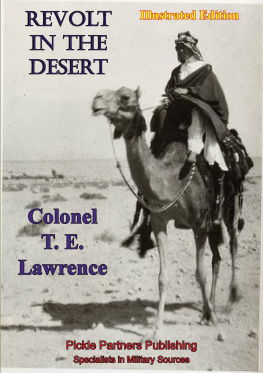
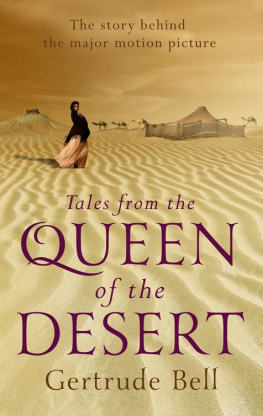


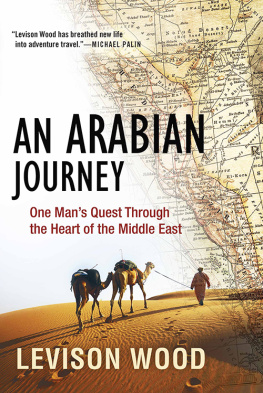
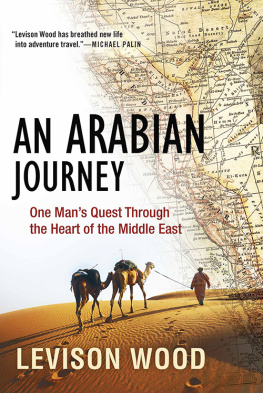
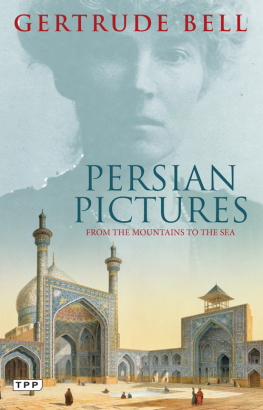

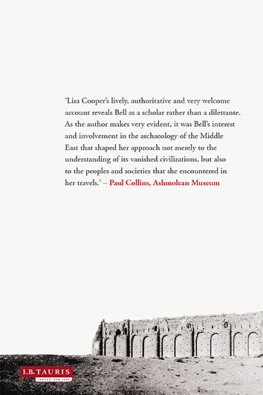
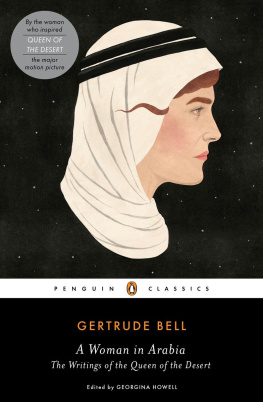


 The paper used in this publication meets the minimum requirements of American National Standard for Information SciencesPermanence of Paper for Printed Library Materials, ANSI/NISO Z39.481992.
The paper used in this publication meets the minimum requirements of American National Standard for Information SciencesPermanence of Paper for Printed Library Materials, ANSI/NISO Z39.481992.